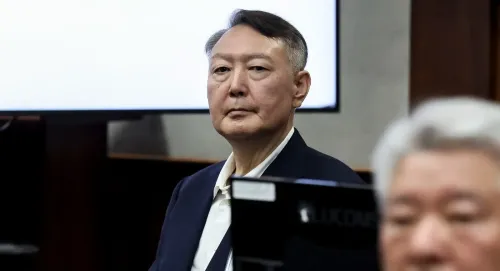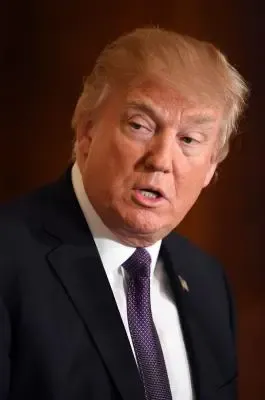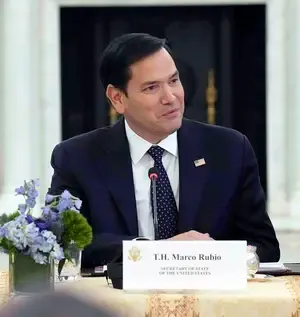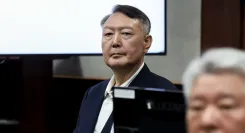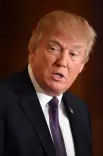Australian PM Declared Champion of Initial Election Debate
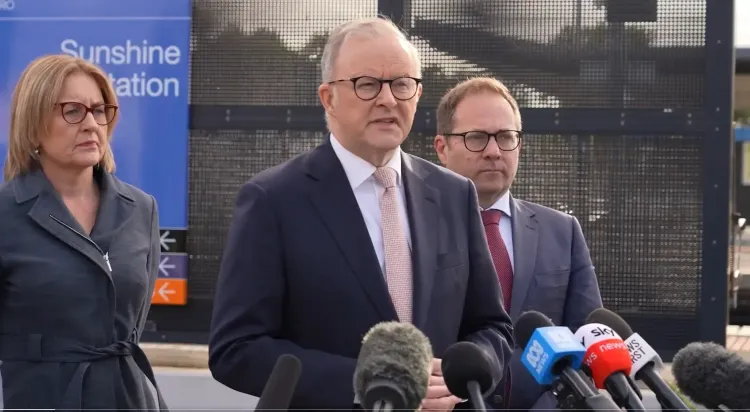
Synopsis
Key Takeaways
- Albanese declared winner with 44% support.
- Dutton received 35% of undecided voters.
- Debate focused on economic issues and U.S. tariffs.
- Coalition's policy shift raised questions about credibility.
- Mandatory voting for citizens aged 18 and over.
Canberra, April 8 (NationPress) Australian Prime Minister Anthony Albanese has emerged victorious in the first Leaders' debate of the general election campaign.
At the conclusion of the debate on Tuesday night, 44 percent of the undecided voters present selected Albanese as the winner, while 35 percent favored opposition leader Peter Dutton, with 21 percent remaining undecided.
This debate, held in western Sydney, marked the inaugural face-off between Albanese and Dutton, the leaders of the governing Labor Party and opposition Coalition, respectively, in anticipation of the general election scheduled for May 3.
During their opening statements, Albanese asserted that “now is the time” to look ahead and shape Australia’s future, while Dutton pledged that a Coalition government would set the country “back on track”.
Following their initial remarks, the Prime Ministerial candidates addressed questions from a crowd of undecided voters for around 90 minutes. The first inquiry of the evening focused on how each leader would handle the administration of President Donald Trump.
Albanese reiterated his stance that the United States has engaged in an “act of economic self-harm” by imposing extensive new tariffs.
Dutton, critical of the government’s inability to secure an exemption from the tariffs, stated that the Prime Minister should “stand up” against bullies and nations that threaten Australia.
On Monday, the Coalition rescinded its plan to eliminate flexible working arrangements, including remote work policies, for federal public servants and to cut government expenditures by reducing 41,000 federal public service positions.
Albanese leveraged this significant policy change in his closing remarks on Tuesday to question how voters could “believe” what the Coalition might do post-election.
“In this uncertain time with global developments, now’s not the time to make cuts,” he expressed.
In his closing comments, Dutton claimed that a Coalition government would “fix the economy” and more effectively tackle the cost-of-living crisis, as reported by Xinhua.
“A Coalition government will always be a better economic manager,” he insisted.
Tuesday marked two weeks until early voting begins on April 22.
Early voting centers nationwide will enable millions of Australians to cast their ballots ahead of election day; however, early votes will not be counted until polls close on May 3.
Voting is mandatory for all citizens aged 18 and over who have registered with the Australian Electoral Commission (AEC), a process that is automatic for most of the population.
According to the AEC, the enrollment rate of eligible Australians for the upcoming election is projected to reach a record-high of over 98 percent.
In the last election held in 2022, over 17.2 million individuals voted, achieving a turnout rate of 89.8 percent. Enrolled voters who neglect to participate may incur minor fines.
Albanese and Dutton are scheduled to compete in a second leaders’ debate on April 16.



